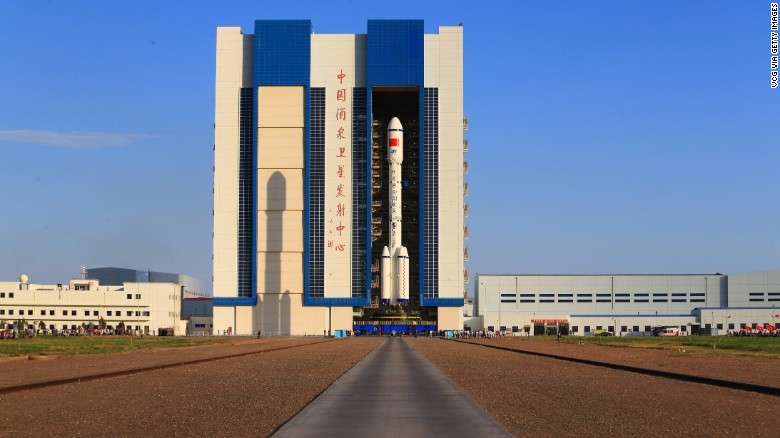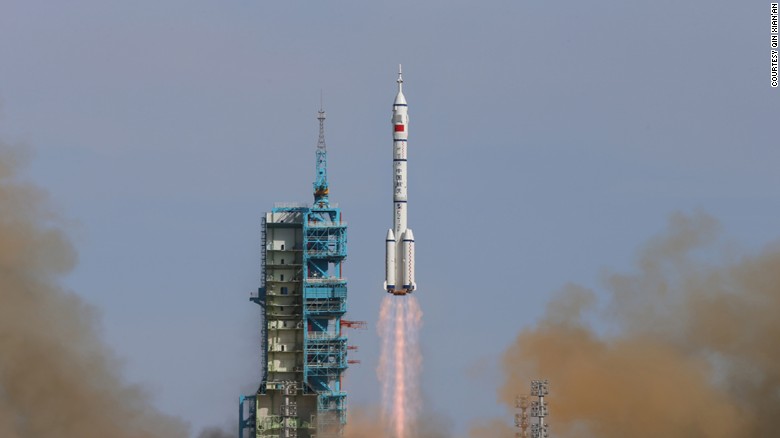Hong Kong – China is set to launch a second space lab into orbit Thursday, a crucial step in Beijing’s ambition to have a permanent space presence.
A Long March 2F rocket is expected to blast off at 10.04 p.m. local time (10:04 a.m. ET) from the Jiuquan Satellite Launch Center in the Gobi Desert carrying the lab, known as Tiangong 2 or “Heavenly Palace,” state media reported.

The new lab is able to host astronauts for much longer than its predecessor, the Tiangong 1, which was launched in 2011. It has two cabins — one for astronauts and experiments, the other for equipment.
If Thursday’s launch is successful, next month the Shenzhou-11 spacecraft holding a two-man crew is expected to launch in mid to late October — China’s first manned mission since 2013.
It will dock with the space lab and the two astronauts will spend 30 days there carrying out experiments — making it China’s longest mission yet.
The Tiangong-2, and its predecessor Tiangong-1, are prototypes for China’s ultimate goal — a permanent 20-ton space station, which is expected to launch after 2020.
“Tiangong is a precursor testbed of capabilities, building toward the large space station has always been the culminating goal of the Shenzhou program,” said Joan Johnson-Freese, a professor at the Naval War College specializing in space programs and space security.
Zhang practices entering the return capsule on May 31, 2013.

Rival to ISS
China’s space station is expected to be sent into orbit just as the US-led International Space Station goes out of service — making China potentially the only country with a permanent space presence.
European astronauts are said to already be learning Chinese in anticipation.
Since 2011, US Congress has barred NASA from contact with China’s space program because of national security fears.
“Chinese politicians certainly have wanted to work with the United States in space, to show they are an accepted part of the international family of spacefaring nations, but with their own space station forthcoming and international partners other than the US willing and lining up to work with them, that imperative decreases,” said Johnson-Freese.
China was late to the space race — it didn’t send its first satellite into space until 1970 — just after the US put the first man on the moon.
But over the last four decades, China has pumped enormous amounts of money and resources into research and training. Future plans include sending a robotic probe to Mars and a potential manned mission to the Moon.
“If the US does not change its policies very soon and begin to work with China in space, it will lose whatever leverage it might having in shaping Chinese space plans for the future, ” Johnson-Freese said.
As reported by CNN
